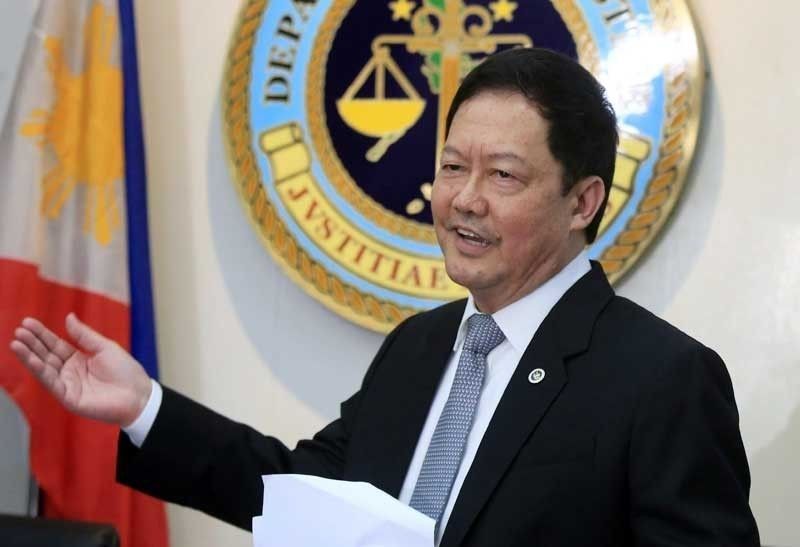DOJ backs OSG vs settlement on $20-million Marcos assets

MANILA, Philippines — The Department of Justice has supported the Office of the Solicitor General in opposing the settlement agreement that allows the distribution of $20 million worth of Marcos assets seized in the United States to martial law victims.
Justice Secretary Menardo Guevarra agreed with Solicitor General Jose Calida that the settlement agreement in the interpleader case pending at the New York District Court is disadvantageous to the Philippine government.
“We are opposing the settlement agreement simply because it does not favor the interests of the government, which we are duty-bound to protect,” Guevarra explained yesterday.
He clarified, however, that the government does not exactly want to block the award of monetary compensation to the martial law victims but “simply wants that the Republic, as a whole, get a better deal.”
“The government’s position is not antagonistic to the interests of martial law victims who are also citizens of our country, but to protect the interests of the republic as a whole,” he explained.
Guevarra also confirmed that his office reviewed the terms of the deal.
Calida has revealed that the settlement agreement in the New York court case is grossly disadvantageous to the government that would get only $4 million from the proceeds from the sale of paintings recovered from an aide of former first lady and Ilocos Norte Rep. Imelda Marcos.
The solicitor general pointed out that the deal is also for the best interest of 9,539 martial law victims in this case as they will receive a measly $1,500 each while their lawyer Robert Swift has sought a hefty $4.125 million in attorney’s fees.
Calida further explained that the proposed settlement required that the Philippine government grant immunity to Vilma Bautista and move to dismiss the cases against her in the Sandiganbayan.
“The government cannot grant immunity to Vilma Bautista. She is a principal defendant in a case currently pending before the Sandiganbayan. The authority of the PCGG to grant such immunity is limited only to a witness who can provide material and relevant information or testify against a defendant in an ill-gotten wealth case,” he added.
The New York court presided by Judge Katherine Polk Failla has reportedly already approved the settlement deal and ordered its enforcement.
Guevarra said that unless the government takes any further remedial action, the New York court order approving the settlement could be “immediately executed.”
“Note that the subject of this interpleader case (the proceeds of the auction sale of the disputed paintings) is in the custody of the District Attorney of New York, and not in the Philippines, and so execution of the judgment will be in the US,” he added.
The Presidential Commission on Good Government, an agency tasked to run after the ill-gotten wealth of the late strongman Ferdinand Marcos, earlier entered into negotiations with the camp of the martial law victims, represented by Swift, that won the $2-billion class action suit filed in Hawaii in 1995.
The negotiations involved some $20 million worth of assets seized from former Marcos’ aide Bautista in New York, including high value paintings.
In the agreement, the government was set to receive $4 million while the victims in the class action would get $13.75 million.
A third party, the Golden Buddha Corp. and the estate of Roger Roxas that allegedly discovered the Yamashita treasure, would also get a portion of the proceeds from the sale of some of the paintings.
- Latest
- Trending
























